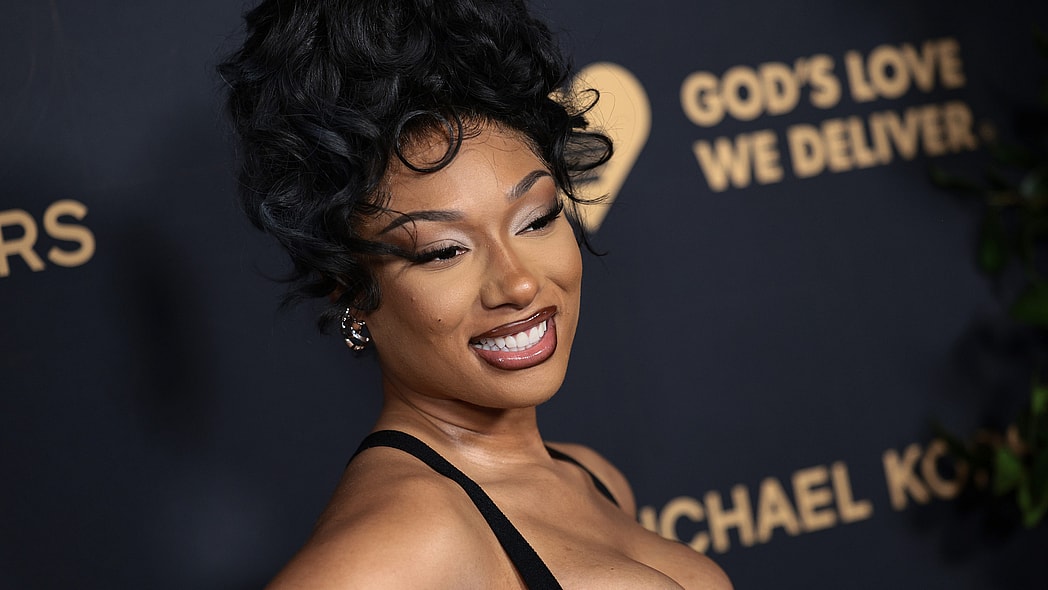Roxane Gay always saves her email threats.
The acclaimed writer and bestselling author could count on multiple hate emails hitting her inbox daily, most from angry men. Some of them threatened her life because she dared to use her voice for a living.
“When you get a one-off angry email from someone who didn’t like an essay or headline they read, like the heat of the moment — then they move on,” Gay told theGrio in an interview earlier this year. “But when someone starts to fixate … that’s when you think this is alarming.”
The famed writer shared, “I just got one too many of those threats where I just thought, man, I don’t feel safe, and I don’t like that I don’t feel safe.”
That’s when Gay took matters into her own hands by getting a gun, finally following the advice of her beloved late brother.
“He had spent years trying to get everyone in our family on board with guns, and I finally decided to take him a little more seriously and figure out ways to protect myself to protect my family,” Gay said. “I didn’t want to just feel like I was passive … I just thought, let me make sure that I have this tool in my home just in case because you never know.”
Gay isn’t the only Black female public figure who has talked about arming herself. Presidential candidate Kamala Harris made headlines when she told Oprah Winfrey in September that she owned a Glock. “If somebody breaks in my house, they’re getting shot,” the vice president told Winfrey to laughter and applause from the audience.
According to a survey by the National Shooting Sports Foundation (NSSF), Black women represent an increasing population of gun owners in America. Gun sales overall rose 58 percent for Black Americans in the era of George Floyd protests. But in 2021, the number of Black women gun owners rose 87 percent, per NSSF.
The personal choice to purchase a gun, intersecting with Black feminism, is the subject of a special long-form essay Gay wrote on Everand called “Stand Your Ground: A Black Feminist Reckoning with America’s Gun Problem.”
In an America where gun rights are frequently quoted in political arguments, particularly between Republicans and liberals, Gay has been intentional about calling out the contradictions in the way Black people are treated when they have guns.
“You have to be crystal clear on the reality that people love to wrap themselves in the second amendment and this idea of ‘standing your ground’ but look at Marissa Alexander, who stood her ground and spent five years in prison and on house arrest,” she told theGrio.

“We have to always remember that the rules are different and its unfair,” Gay explained when asked about how Black people should consider the decision to purchase a gun. She added, “How much risk tolerance do you have? And that’s a very individual answer.”
Gay said it’s “frustrating” that many in the United States “talk about the Constitution but are very selective about who they want the Constitution to apply to.”
“It’s just a reality you have to keep in mind. It’s also another reminder that if we don’t protect ourselves, who will?”
Gay’s call to action is timely, as political violence and threats have been on the rise during this divisive and historic election cycle. The possibility of America having its first Black woman president is one Gay has called exciting, even with all of the toxicity that has emerged from opponents of Harris.
“We have an opportunity … for real political change,” Gay told The Daily Show on a recent appearance, noting, “We don’t have to uncritically engage with her. I think she’s gonna do the job extremely well. I don’t think she’s gonna make everyone happy, but I don’t think that’s possible for a president — and look at the alternative.”
According to some experts, even after Nov. 5 and the election of America’s next president, threats of violence may persist.
Gay, a Haitian American queer woman and feminist — who has often written about her body in relationship to conventional standards — sits at many intersections of identity that are in the crosshairs of the culture wars.
She’s recently written about the Trump-Vance ticket’s racist attacks on Haitian immigrants, and she rejects the notion of “both-sidesing” the violent rhetoric.
“I think it’s really important not to engage in the debate on their terms,” Gay tells theGrio. “They don’t get to set the agenda from a place of untruth. When someone says, ‘It’s because your rhetoric has been damaging,’ that’s not a legitimate statement. It’s not a legitimate question.”
Like a gun has provided some form of physical protection, protecting the mind from the games of propagandists is a crucial piece of mental health and intellectual maintenance that some may underestimate. For Roxane Gay, participating in any political debates based on a lie is a non-starter:
“Moving forward, we really cannot let them set the terms of engagement because they’re engaging on false premises. I’m personally done with allowing that to happen and taking that seriously. You just have to always f*cking pushback.”

Natasha S. Alford is the Senior Vice President of TheGrio. A recognized journalist, filmmaker and TV personality, Alford is also author of the award-winning book, “American Negra.” (HarperCollins, 2024) Follow her on Twitter and Instagram at @natashasalford.









